Yuliia Horbasenko
She is a mixture of dreadlocks, a sweet smile, and wisdom in her eyes.
She is an active volunteer at the debris removal in Moshchun.
As you read this, Yuliia Horbasenko is blowing out the candles on her birthday cake.
Before the war, she considered herself a private person, and chose her social circle very carefully, but now she admits that communication with B50 volunteers helps her emotionally in difficult moments.

In the #B50heroes interview with Yuliia Horbasenko, read:
– why she was afraid when she first went to volunteer in Moshchun;
– how she got her friends to help with B50;
– why she changed her career as a lawyer and civil servant;
– what she sees as a person’s true success.
| Name | Yuliia Horbasenko |
| City | Kyiv |
| Age | 39 years old, birthday – March 23 |
| Profession | lawyer, entrepreneur, active volinteer of B50 |
| Hobbies | sports (TRX classes), making woolen cat backpacks using the felting technique, traveling |
| Sea or mountains? | now – the mountains, where there is silence. In general, she will try to combine them into one route |
| Childhood sport | did not play sports until the age of 25 |
| Favorite food | delicious bread with some kind of spread |
– – Yuliia, I usually start interviews differently, but this time I’ll start with greetings. How are you going to celebrate your birthday?
– I probably haven’t had a birthday for three years now: first there was COVID, then the war, and this year there’s also the war. This means that I am still 36:)
– Let’s move from March 2023 to February 2022. Where were you on the 24th? How did you know that russia’s large-scale invasion of Ukraine had begun?
– At home, sleeping. My sister ran into the room and said: “Explosions! They are bombing!”. I thought maybe she was imagining things. Then my friends started texting, and no one was sleeping anymore.
I gathered all the documents in one pile. Before that, everyone was talking about this invasion, right? And I was playing out scenarios in my head, how I would go and collect the documents. And then this sh*t became a reality, and it was unpleasant.
My friend Tania came and said: “Don’t worry, I’ll be here for a maximum of 2 days. Then it will be over”. And then 2 days turned into half a year.

We live outside the city, towards Odesa (highway – ed). We realized that it was still possible to stay in that part, in that direction. My sister came with the kids. My parents also live nearby.
We decided everything collectively, since we live together… And then one day we decided that we had to move away (I didn’t want to, but the majority did). We got into the car with the cats (we had a funny traveling circus). We drove out the gate. A neighbor is coming:
– Where are you going?
– We’re running away.
– Why?
– Because of the war..
– Do you know what’s happening on the roads?
Do you remember when everything in the west (of Ukraine – ed) was already filled? There was no room to live there. He explained why we could stay here.. So we drove back to the gate. We drove out, drove 5 meters and turned back in.) It took us longer to get set up, to load the animals.
And that neighbor left a week later)))
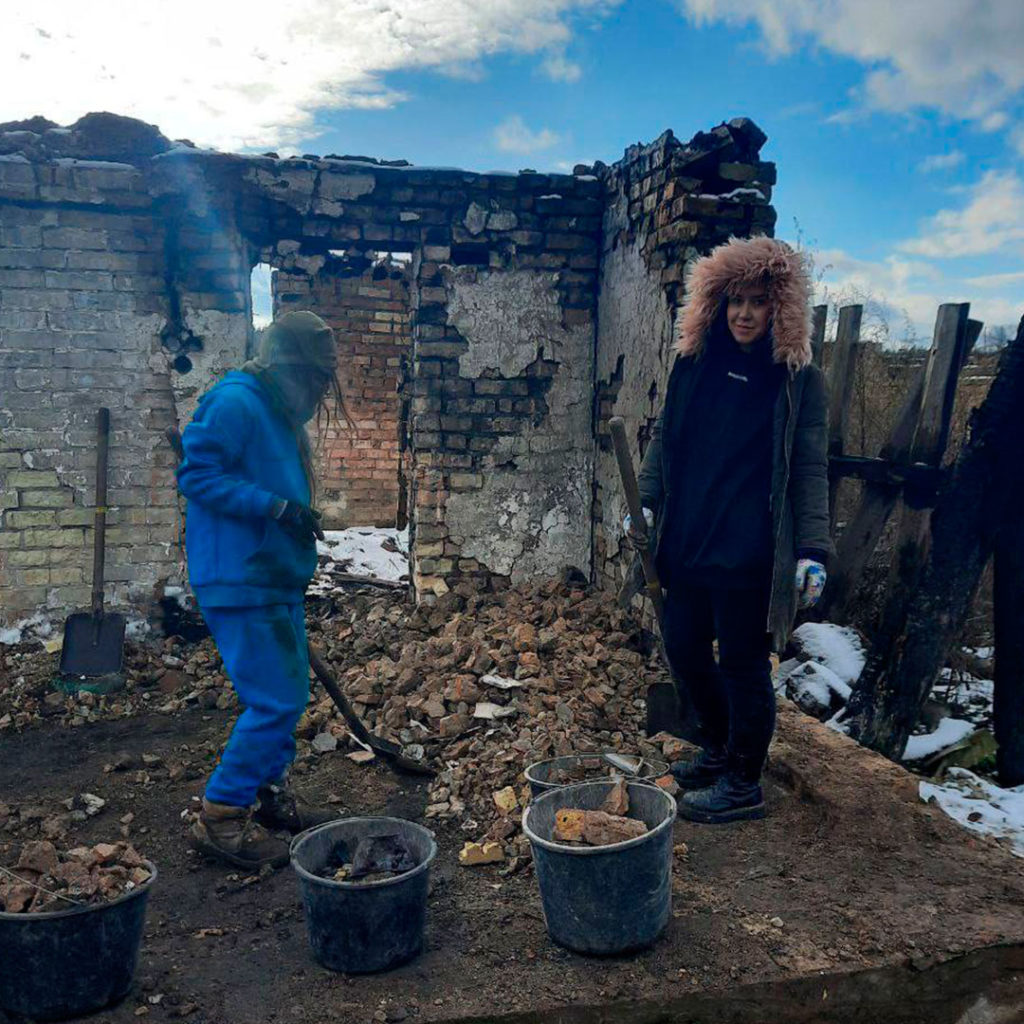
– Did you believe in the possibility of war? There was a lot of talk about it in the winter…
– I was very naive. It seemed to me that in the twenty-first century, war, tanks, killings, missiles – this would definitely not happen. I thought that there would be some information injections, economic influences, we would be blocked… But not murders.
So for some time I was waiting for them to scare us. That we just had to wait it out, save ourselves, and not make any mistakes.
– When did you realize that it would not end so quickly?
– When Bucha happened. I had a moment like that… You know when a person is hysterical and gets slapped? I really wanted to believe the ****ing russian comments that it was actors. But people who had survived the occupation began to appear. They told me things that I had seen in movies about the year ’45: that water was taken from the river, that civilians were shot at…
I cried for three days. Then I realized that this could happen to me. And on purpose I registered in a group where bodies were identified to realize that this was a war, that people were killed just like that. That it was not a dream, but such a terrible reality. I registered to face this and from there to start some kind of upward path.
“I have to do something,” I decided. Because before that, I was in a stupor. We started looking for places where we could be useful. We followed groups where people asked for medicine or to bring something to the checkpoints. Once I cooked: I brought a bucket of buckwheat to the guys. Then the one I was in touch with died. His name is Serhii Myronov, and I want him to be remembered
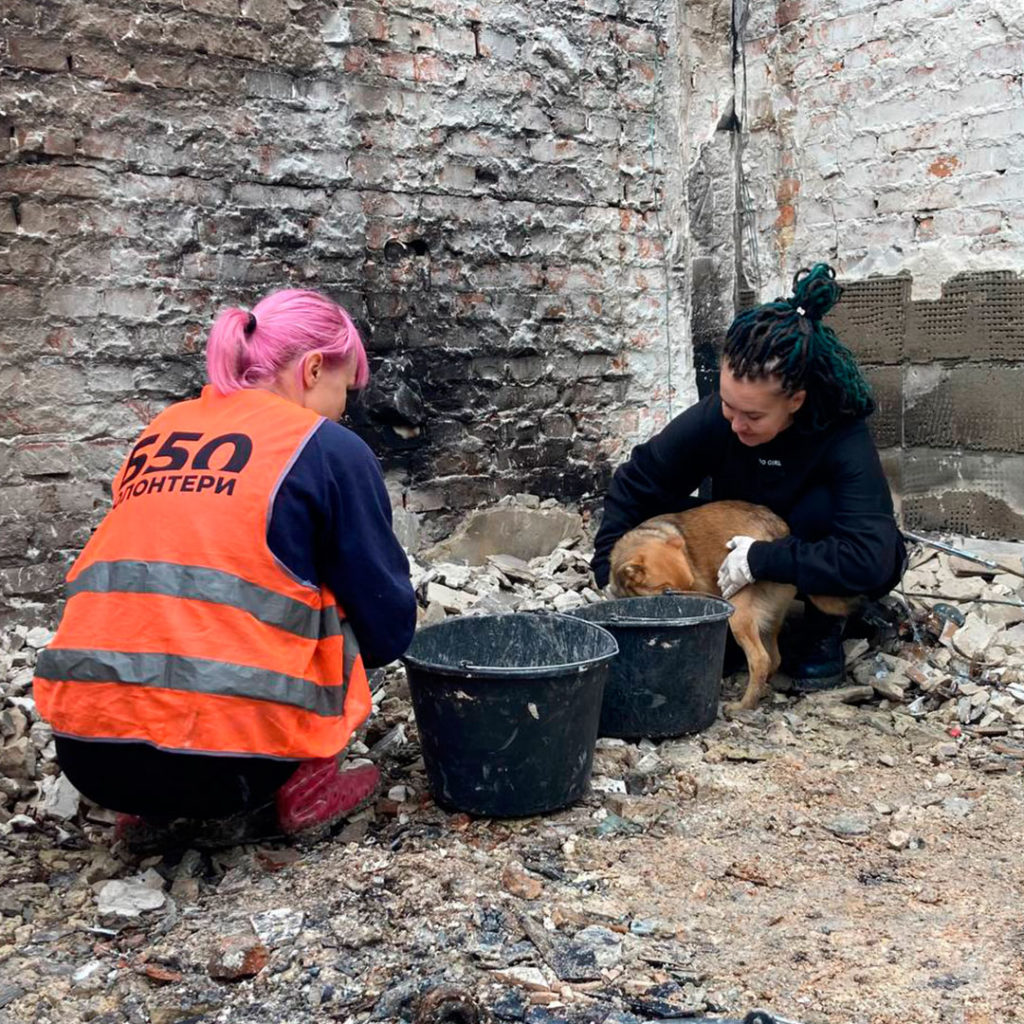
Together with my sister, who lives in Germany, we made a humanitarian corridor. Do you remember when the military had to buy candy bars and hot water bottles? We didn’t have it here. So she bought it there, sent it to the carrier, and we picked it up and continued to transport it. Oh, and AliExpress didn’t work in our direction, but it did in theirs. So we ordered something else there for the military.
By the way, I bought my first car during the war. Not for myself, but for the Armed Forces. It was a SsangYong Rexton. I bought it myself, paid my own money, and had it repaired.
– How did you find out about the B50 volunteer community?
– I found B50 in July, I think, in some telegram group.
Before that, I wrote to Dobrobat. But everything is so complicated and time-consuming with them: you apply, then they call. I was also afraid that I couldn’t do anything with my hands. I thought they needed guys.
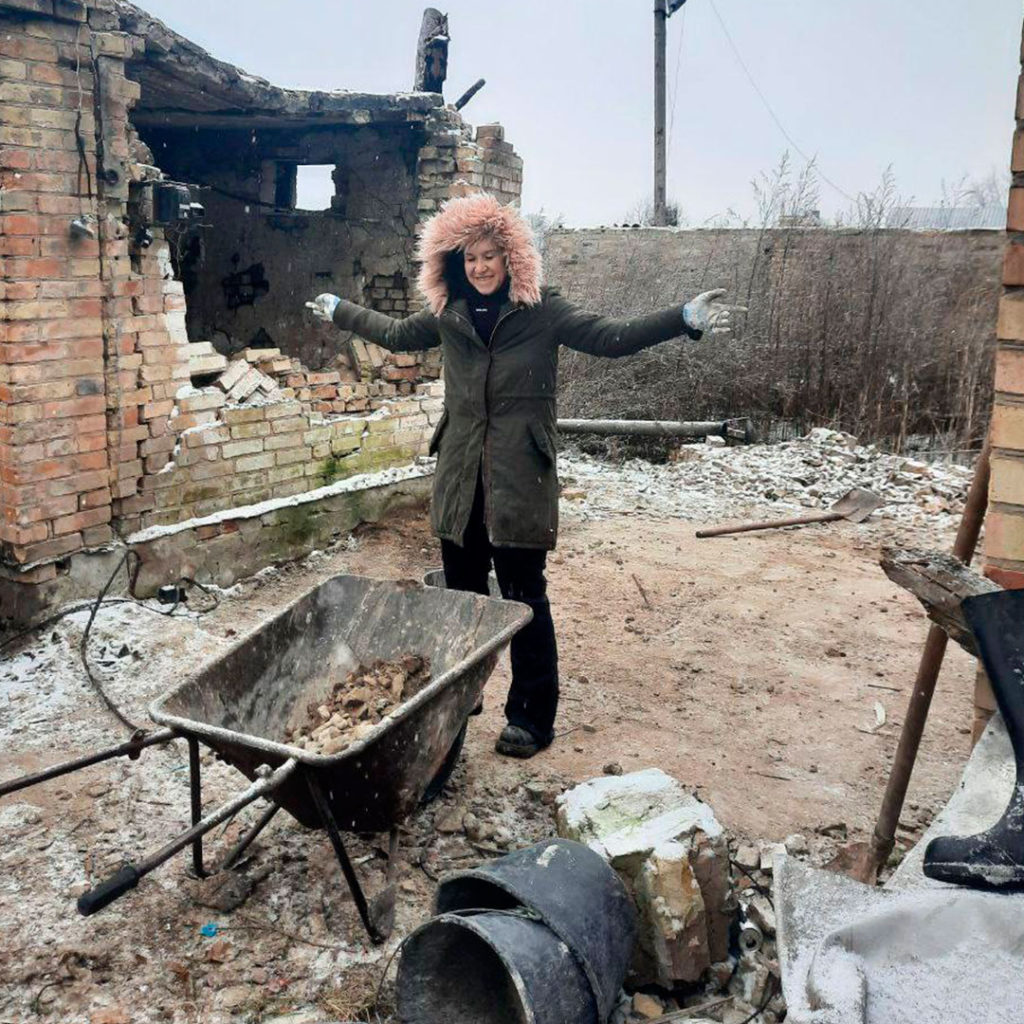
And then I got to B50 and realized that you don’t have to know anything: just take buckets, put bricks in them and carry them to the trash can.
On the first day, we were in Moshchun at Volodymyr’s place, where he owns a sawmill (and where we recently started building a volunteer warehouse – ed.) We were just loading shell rock and bricks, and the guys carried it. I remember that you gave me a safety briefing then.
– How did you see the village? Was it your first encounter with such visual consequences of the war?
– I took it without much surprise because I had seen Bucha before. The russians did not surprise me.
Why didn’t I go for a long time? Not because I thought I would see something there, but because I might hurt someone. Everything is fine with me, I have a place to live. And here I come like a fairy saying, “I’ll help you.” I was afraid that it might offend someone.
The ruins made me have only one desire – to clean up after the russians, to make it clean. So that people could build houses. So that nothing would remind us that these pigs were here and what they did to us.
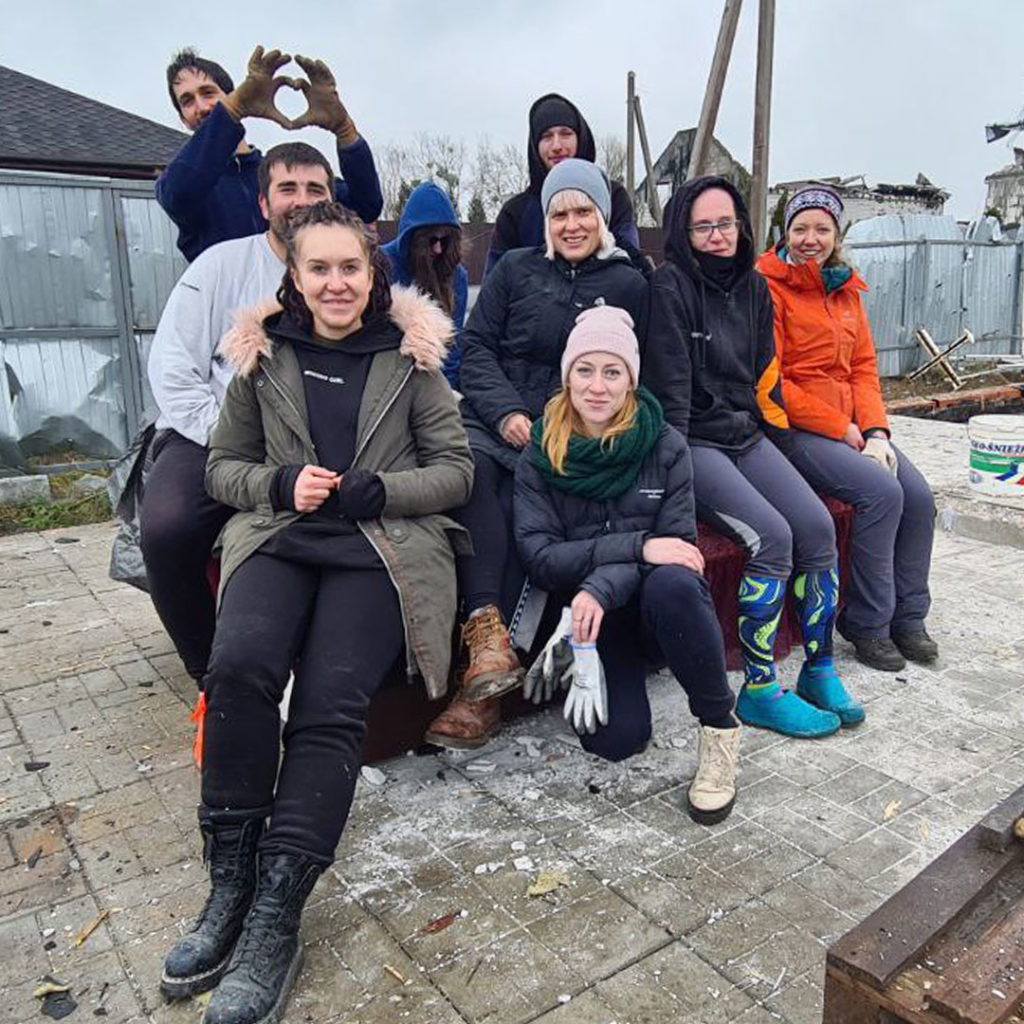
– What factors do you think influenced you to start going regularly? You volunteer almost every week, sometimes twice or three times a week.
– Because of the team. I like all of our people; there is such adequacy around here. We care about each other, and there is some kind of consolation.
I was rather closed, selectively letting people into my circle of friends. Before the war. And now I realize that I like being with people—different people, new people, people I see for the first time—and that at the end of the day, you eat and drink from the same bowl. It’s not as scary as it might seem!
In fact, B50 doesn’t even know how much it has saved me sometimes! You realize that something tragic happened on Tuesday, and you cross your fingers and wait for Friday: on Friday there will be Moshchun, there will be people, and it will be easier for me. And on Friday, it does indeed somehow become easier.
Those in the community are people who care. They are very kind (even if it is not immediately noticeable from the outside), sincere, and honest. People with whom you are not afraid.
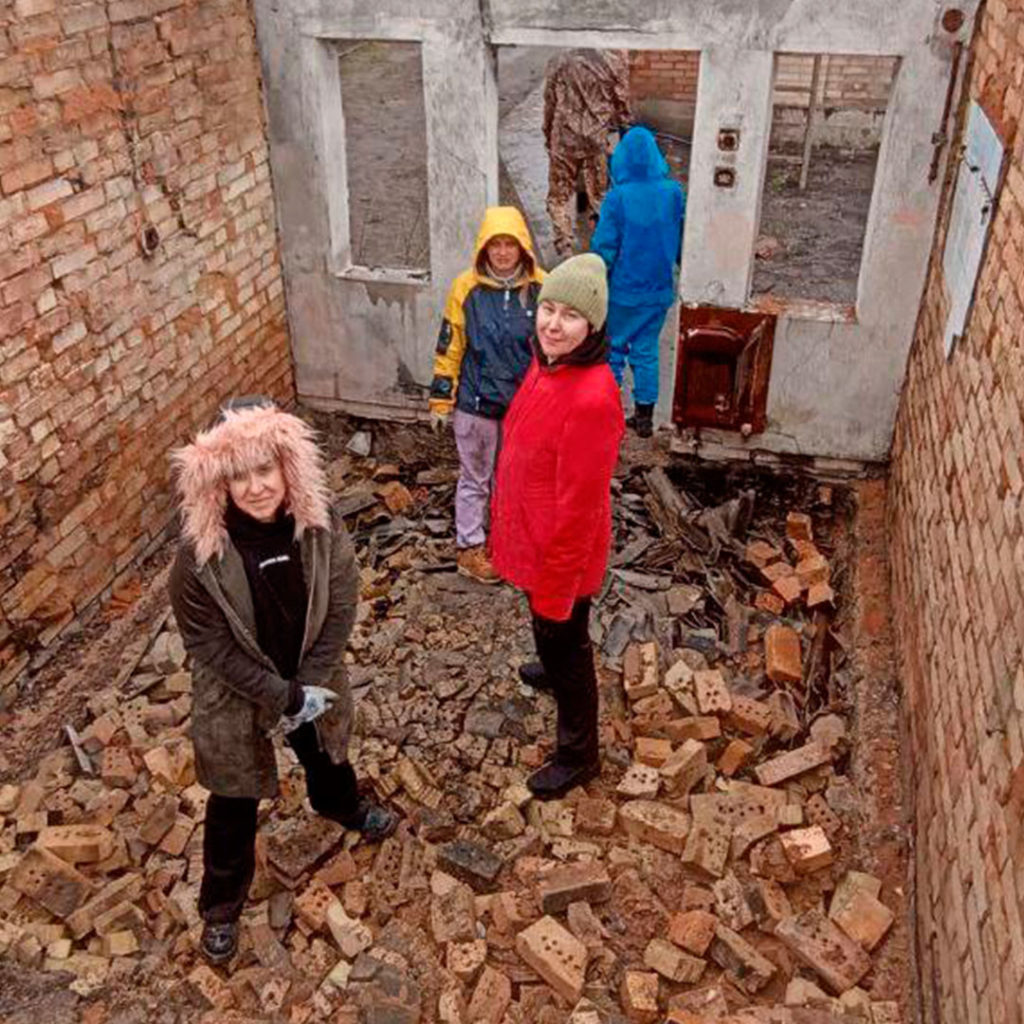
And the people we go to visit in Moshchun are like my aunt or grandmother somewhere. I thought that they would be more depressed, more aloof, and wouldn’t approach us. But they were laughing… And it was all so mixed up. One woman was joking, and then she sat down and said that she curses russians every day. You listen to this and realize how much depth and authenticity there is in it, and how much it hurts her.
At first, I went once a week. It was enough to recover. And then I wondered how they did it three times. For me, these are super people! At first, I went twice and came out alive. And when I went three times (it was in the summer), it was the best, because you are useful, you see that you are helping, and they are waiting for you. You leave a location, for example, and it’s already clean: only the foundation remains, no more bricks. For me, these bricks are like another act of violence: “We will break your house. It will lie there. You will see it every day. You will see that you were weak when we destroyed it.” And when we remove this, I think people feel better. I do. That the russians simply cease to be here.
– You are very good at involving your friends in volunteering. You have brought a lot of friends with you and still do. Do you have anyone else in your “reserve” for this season?
– There was Tania. Then Sasha Pak. Pak brought Nadia along. Nadia brought Ira. Mykhailo and Olia. And now Ania. I think they’ll come back when it gets warmer. That’s seven in total. I can bring three more) My sisters have not been here yet. One was going to come today, but she had to go to the doctor. My cousin was not here. He is going to come for the warm season.
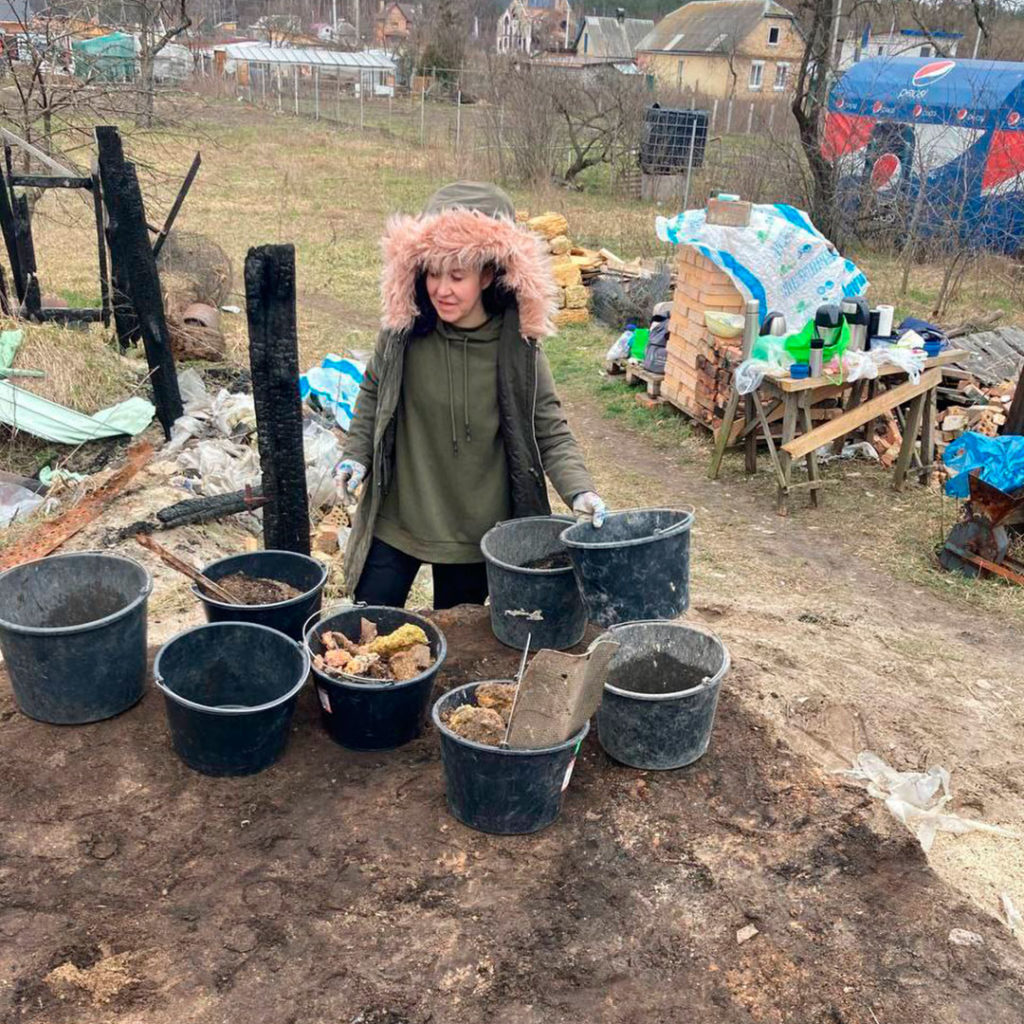
– How do you manage to encourage them? After all, most of them come regularly?
– I talk about this activity! I don’t think you should be silent about what you do because you’re bragging. When they ask if I can meet them, I say that I can’t, because I’m going to “rake Moshchun”. They ask me what does it mean to “rake Moshchun”? Yeah, swallowed the hook! Now there will be a story about “rake Moshchun” with photos.
I tell them that it’s about helping people. By the way, they are stopped by the fear of the unknown: what to do? can I do it? how to go? what do you take with you? do I have the right clothes? my back hurts and maybe I won’t make it? I say: “I have no goal to destroy you. Just trust me. Let’s go!”
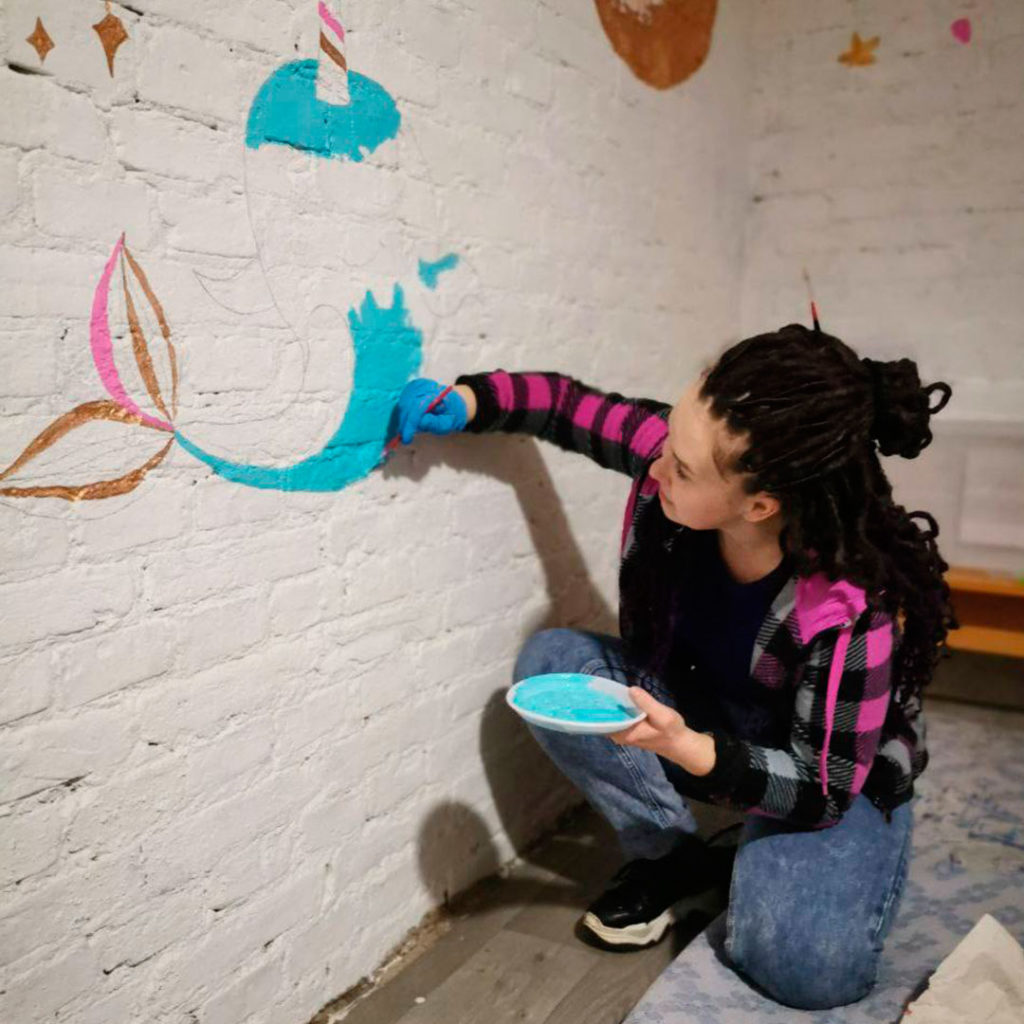
– How do you feel in your new role – transformation of children’s shelters?
– I thought Ruslan just wanted to remove me from the locations))
At first I was afraid to come here. I thought I wouldn’t succeed. In fact, the most difficult thing is communication, when you have to explain to the management why this is like that, why we can’t do what they want, but only within the limits of the materials we have. And to come in the morning, mix the paints, and paint… Especially since we have a great team here. Coloring is so therapeutic. These shelters are like a mini-TV, a mini-cartoon for children. In general, I want bomb shelters to be unnecessary, to be done in vain, so that no one would ever hide in them.
– If you compare the “bricks” in Moshchun and the “paint” in Vorzel, which is more therapeutic for you?
– They should be combined! I would recommend combining them. Here you are more calm, you paint meditatively, you don’t freeze like in Moshchun. But it seems to me that almost everyone should see how the “russian world” comes to save and what it looks like in the end. They should join the cleanup so that they don’t say “what’s the difference,” “same people,” etc. That’s why you need to come to Moshchun and here.
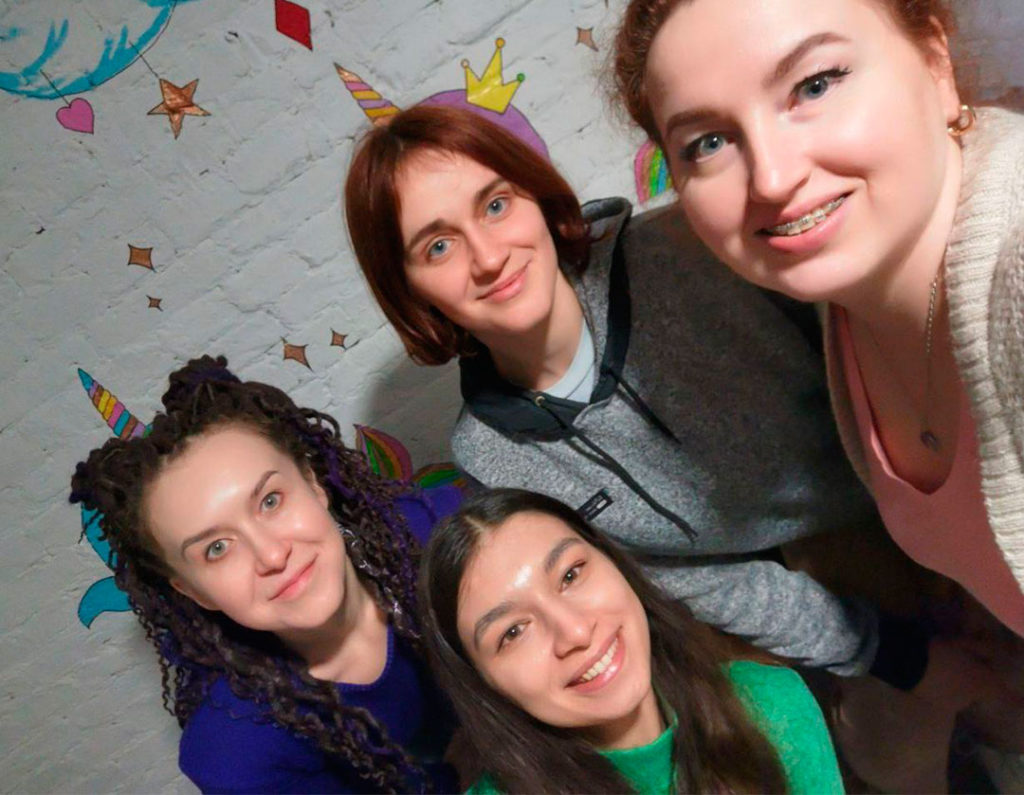
– Who are you outside of volunteering?
– I’m a family lawyer: my parents are lawyers, my sisters are lawyers. I worked for a while and decided I didn’t want to.
At first I was an assistant lawyer. Then I was a research consultant at the Supreme Court. They receive requests from other institutions to interpret a certain provision: a code, a law. And you, yesterday’s or the day before yesterday’s graduate, have to explain to some adult man (in my case, it was judges of lower courts) what a certain article of the Code of Administrative Procedure means. I had a supervisor who was supposed to give me an idea that I could describe. But he didn’t do that. He was as interested in it as I was. I tried it for a year, and read a lot (because the code was still new, and there were a lot of questions and requests about it). And I decided that I didn’t want to.
My parents were not happy, they saw me as a civil servant. But I was getting married, I thought I had to give birth to children, a household to run. Later I realized that I would not be a housewife.
– But now you are lucky, right? How did you manage to get your life back?
– I listen to what I want. I don’t go where everyone sees a successful person like that. I go where I can and want to be and do something. That’s why you’re lucky: because you do what you know how to do and what you want to do. A person should be happy – this is real success.
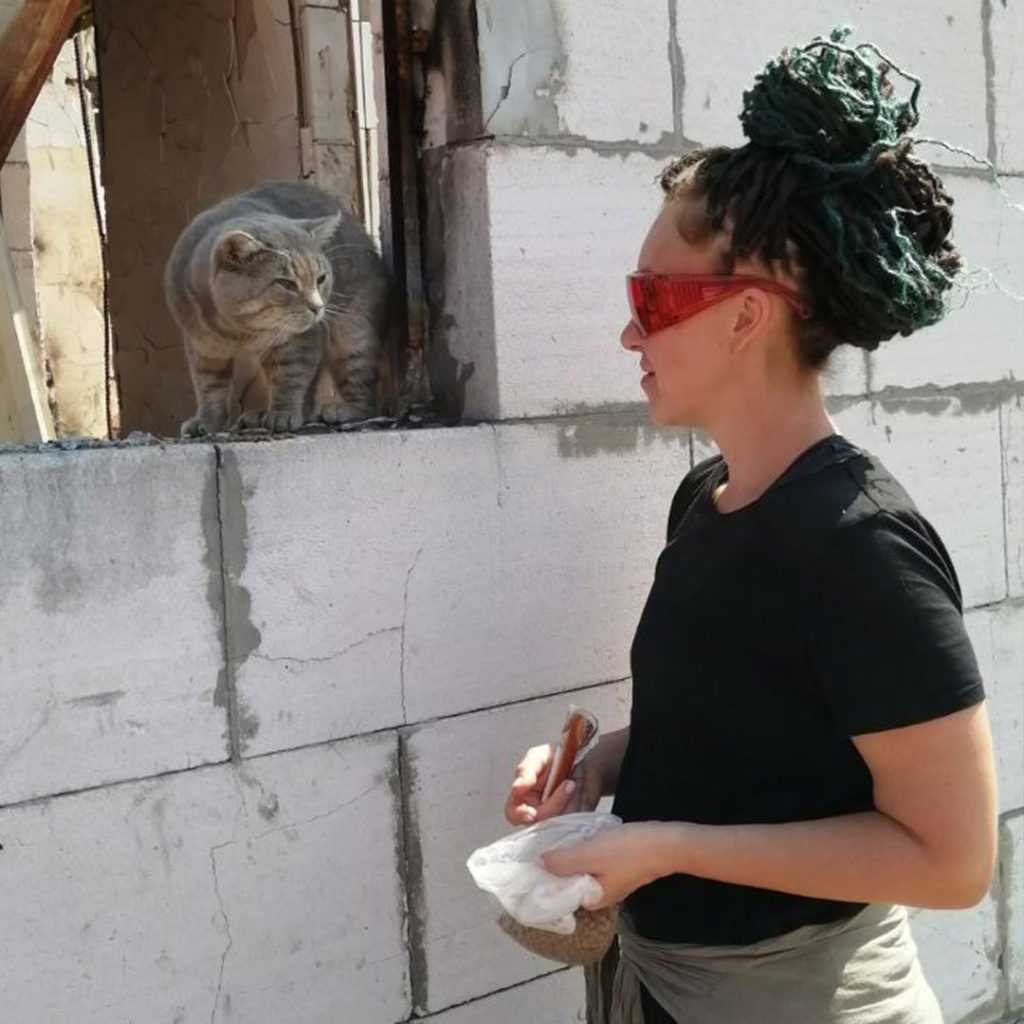
– What makes you happy and brings you money now?
– I have a passive income, so to speak. I have an apartment that I can rent out. Now it brings in something. A year ago, it was nothing. I have stocks. I have stashes for a rainy day, a brown day, a dark blue day…
For me, renting out housing is really a business. To raise the price, you have to do something to make the apartment more expensive. After the people who have lived there, you have to put it in order. That is, you have to have a gap and a team to help you. Besides, the market is big: why should people live in your place? Again, if you take 100,000 million and make repairs worth 100,000 million, how much will you recoup? This is all very interesting, and unfortunately, this is not taught.
At first, I made every possible mistake. For example, you are given a deposit, you spend it, and then the person plans to move out and you don’t get paid for the last month. You go into the apartment, you have to do everything, and you’re like: “Sh*t, I’m a businessman”.
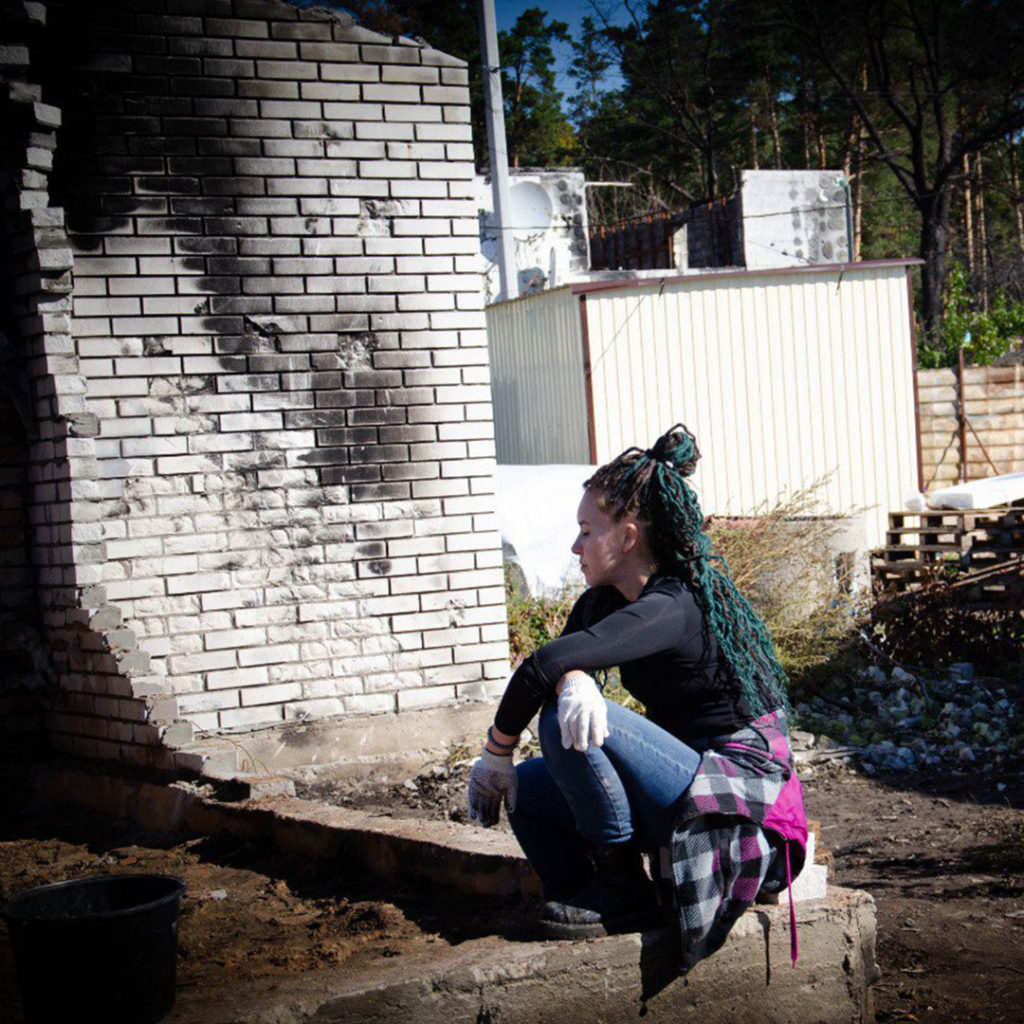
I’m an individual entrepreneur, I have an account, I pay taxes. If you don’t worry about it, you’re not protected. And then your tenants make a scandal, and how do you prove that they are renting from you? There will be a lot of questions. In addition, I work with legal entities that rent housing for their employees. You have more weight when you say that you are an individual entrepreneur and here is my bank account.
Otherwise, you don’t pay taxes, so where do you get your money from? How will you prove your sources of income? It’s better to pay. These amounts are not as terrible as everyone says: You pay 5% and you live. Now you don’t even need to go to the tax office. There are so many different programs where you can do everything automatically, submit reports, and make electronic signatures.
I’ve been an individual entrepreneur since 2011, I think. Back then, you had to go to the tax office yourself, put paper reports through the window, and a woman would yell at you. If you wrote something wrong, a woman would yell at you even more. Now it’s all quick: you pay and sleep peacefully. You see how much you paid. It’s so convenient!
– Have you ever met any less-than-adequate tenants?
– Do you know what bedbugs are? My tenants brought me these. I don’t know how. They lived there for a long time. After a while, they complained and took a picture of a bug on the couch, telling me that there was such a problem and what to do.
The walls were painted and I washed every inch of it with Domestos. After a disinfector (a special service) had already come twice. As a result, the sofa, curtains, and all the textiles were replaced, in short. No security deposit will cover this. But it was a lesson.
If the neighbors had found out about it, they would have dragged them to the front door, rolling them in tar and feathers for doing such things.

– You mentioned that in order to make housing rental a business, you need a team. Who helps you?
– I have an assistant, and we clean together. I can wash the hood, the toilet, and the fridge. Because if you don’t wash the hood after you’ve used it for a year, you’ll throw it away the next time. I like to rent out housing when it is clean. It’s the kind of place I would like to rent myself. And then when people come and they have seen five properties today and stay with you, you are happy that you did well
There is a realtor who screens out a lot of inadequate people, in particular “bloggers”. Once, a few came to view, and it seemed that they were not quite in their mind. If animals are fine, children are fine too, foreigners are fine, and bloggers…
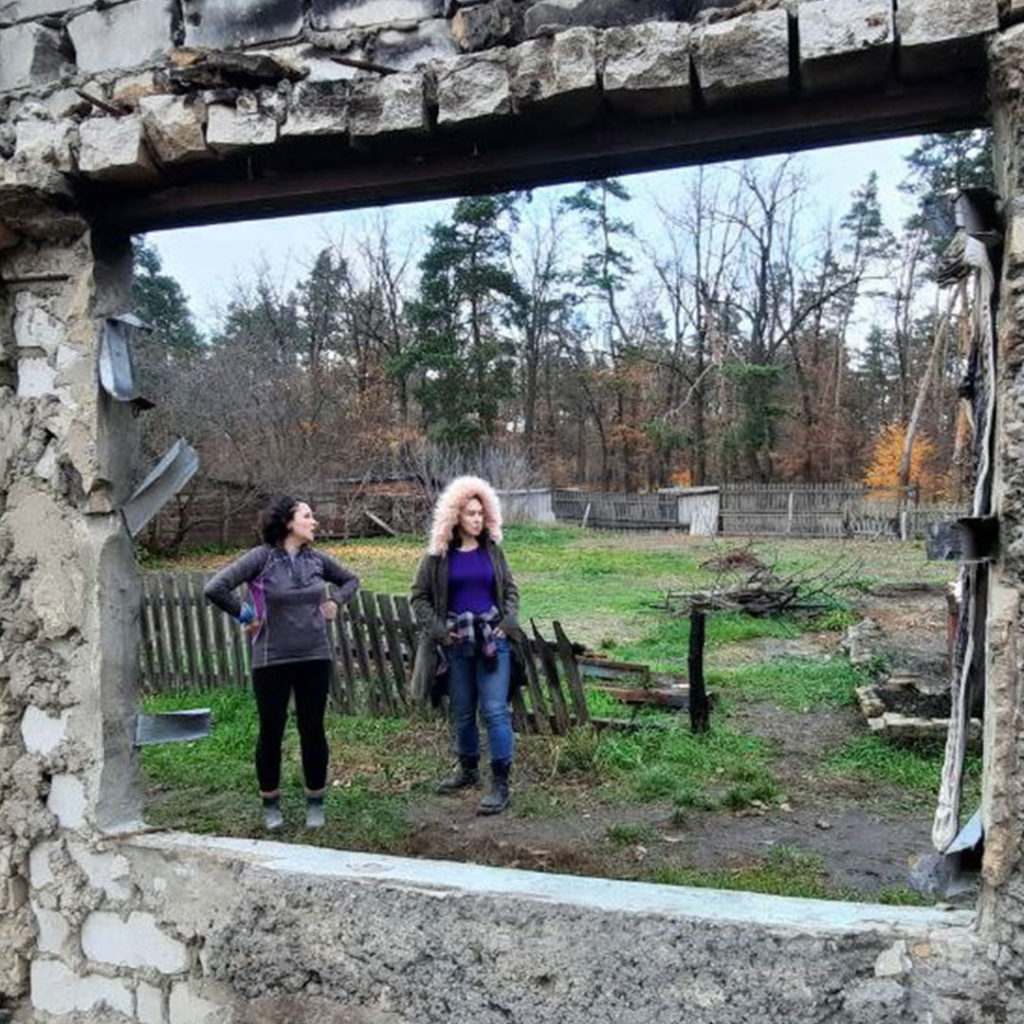
– What is the current state of the rental real estate market?
– By the way, I don’t have any empty apartments now. Except for those where people are abroad (but they pay the utilities). Most of them, by the way, have returned.
Right now, I have people packing their things. They left a long time ago (they are citizens of another country), a year has passed, and they were waiting to return. But… Now their friends are packing.
Now foreigners have arrived, and for them the high prices may be bearable. But I believe in karma. If you lie and charge too much, then you may be charged later. There is a market price. You announce it and work in this segment.
We have an agreement with our tenants on a reasonable payment for the duration of the war. And both sides are comfortable in the end.
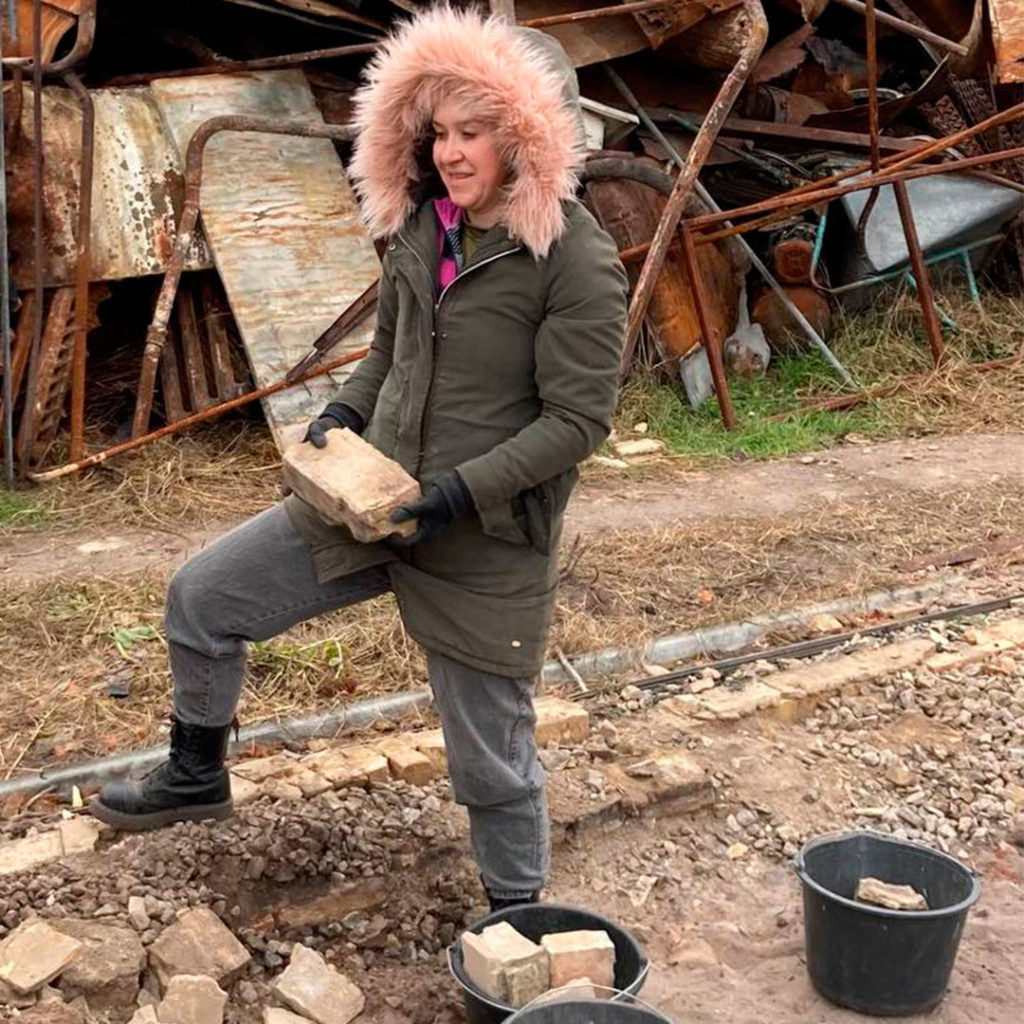
– How do you see the immediate future of our country?
– I would really like the war to end. I really would. Sometimes I think I have no more strength.
I’ll stay in Ukraine, I’m not considering moving. We have a wonderful country, I feel comfortable here, I know how to be here. I would like to do something useful (like what we are doing now).
Many people I observe are going through stages of realizing that we are not the same people as russia, that you cannot wait for someone to come and solve your problems, that we are the state, that something depends on your actions.
Now I am asking everyone to be kinder to those around them. I see many manifestations of “goodness” now, and it makes me so happy. That is why I say that we have wonderful people. As soon as the war is over, everything will be better than it was before. Because now this wonderfulness has just been revealed and manifested!
Interviews were conducted by:
- Coordinator – Anna Norynska
- Interviewer – Nataliia Hryniuk
- Transcriber – Mariia Naumchyk
- Editor – Svitlana Rudokvas
- Build editor – Bohdan Holovchenko
- Translator – Anastasiia Lypchak


